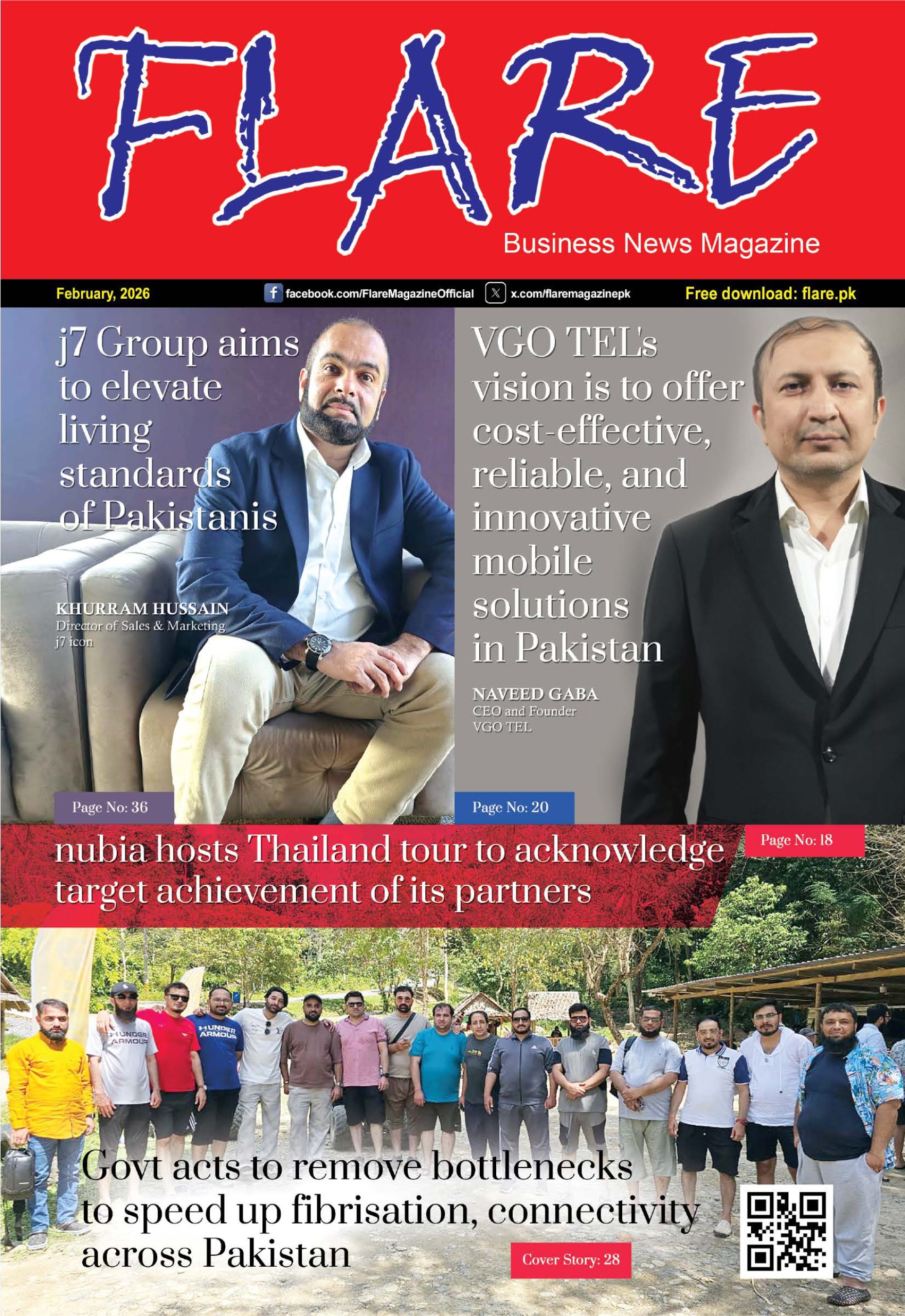Broadband internet has grown into one of the most crucial elements for societies today. A readily measurable impact on individual and social quality of life is evident in how broadband has brought previously unimaginable growth opportunities in reach. The impact of broadband is visible in how people today educate and entertain themselves, get health care and choose treatments, make choices and place orders, stay in touch with dear ones, share and form their opinions, communicate with and influence the broader society and governing. This access to information is making societies more informed and enabling people to take control of their lives. Businesses are also leveraging the potential of broadband in terms of lower cost of doing business; reach to much larger customer base and shorter sales cycles.
The role of broadband in wider access to basic necessities like education and health is already visible and tangible in Pakistan through opportunities of distance education and training. This alone has the potential to cause revolutionary change in the lives of millions of Pakistanis that otherwise do not have access to quality state education infrastructure or cannot otherwise afford expensive private education. It is a valid observation that with constant increase in broadband speed the quality of internet based education has improved from plain text based material to audio-video recording and even live streaming of educational sessions. The concept of virtual classrooms gets nearer and possible with the constant increase in fixed broadband speed.
Tele-health is another aspect of human capital development, addressed by broadband in a developing country such as Pakistan. In its simplest form individuals today have more information on health care such as healthy diet, physical training, initial self-diagnosis, treatment options and making the choice to select medical doctor based on patient reviews. For more remote areas of Pakistan this access has already manifested in the shape of tele-health centers and other model testing projects.
These tele-health centers provide initial diagnosis and prescription possible for inhabitants of areas where basic health facilities are not available. Greater broadband speed is essential to take this a step further towards virtual medical appointments and full machine assisted diagnosis, so that health care services are available equally to everyone.
At the economic front, the role of broadband is more deep and tangible. Faster broadband in particular has changed the way organizations respond to market dynamics and stay ahead of the competition. Highlight of this change within Pakistan is most noticeable across the banking sector. Online banking, real time funds transfers, inter-bank clearing and speedy trade facilitation services are just some of the key everyday core banking functions realized by broadband integration into banking processes. Majority of online banking related services across the country are carried through PTCL network (the largest provider with 80% share of broadband as per Pakistan Telecommunication Authority report 2014 which covers more than 2000 cities and towns, enabling banks to provide online banking and ATM networks nationwide.
The impact is noticeable across the economy in the way businesses optimize costs and deliver to customers. Larger businesses such as the commercial airlines have made selling of tickets and acquiring of e-boarding pass a matter of a few clicks. Where this translates into reduced operational costs it has sped-up the selling cycle. The textile export industry today showcases its products to a global customer base and book online orders.
The aforementioned business opportunities and benefits have a positive correlation with the penetration and speed of broadband service. More broadband penetration thus translates into more opportunities and progress. The relevance and benefit of broadband across all these socio-economic aspects can be vividly seen in the change that it introduces in the way things are done. Broadband has become an important support aspect of our individual and collective decisions and actions on a routine basis. PTCL has been the primary driver in this surge, where the company’s state –of the-art network acting as the backbone of connectivity solutions to organizations, businesses, SMEs and banks.
As an enabler of growth at a macro scale and catalyst for economic and educational uplift, the power of broadband needs to be harnessed further, to provide equal opportunities to everyone everywhere. The need of the hour is to fully capitalize on broadband infrastructure and PTCL is fully committed to empower individuals and organizations through its broadband infrastructure.



